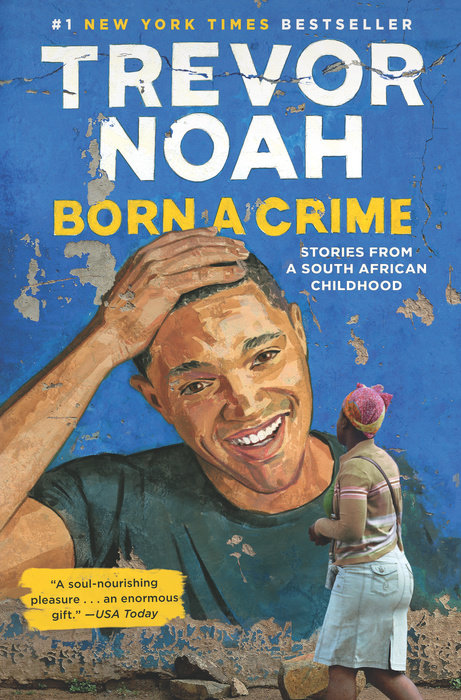Trevor Noah on Growing Up in South Africa Under Apartheid
Literary Hub
2016-12-02
Trevor Noah

“Where most children are proof of their parents’ love, I was the proof of their criminality.”
When the doctors pulled me out there was an awkward moment where they said, “Huh. That’s a very light-skinned baby.” A quick scan of the delivery room revealed no man standing around to take credit.
“Who is the father?” they asked.
“His father is from Swaziland,” my mother said, referring to the tiny, landlocked kingdom in the west of South Africa.
They probably knew she was lying, but they accepted it because they needed an explanation. Under apartheid, the government labeled everything on your birth certificate: race, tribe, nationality. Everything had to be categorized. My mother lied and said I was born in KaNgwane, the semi-sovereign homeland for Swazi people living in South Africa. So my birth certificate doesn’t say that I’m Xhosa, which technically I am. And it doesn’t say that I’m Swiss, which the government wouldn’t allow. It just says that I’m from another country.
My father isn’t on my birth certificate. Officially, he’s never been my father. And my mother, true to her word, was prepared for him not to be involved. She ’d rented a new flat for herself in Joubert Park, the neighborhood adjacent to Hillbrow, and that’s where she took me when she left the hospital. The next week she went to visit him, with no baby. To her surprise, he asked where I was. “You said that you didn’t want to be involved,” she said. And he hadn’t, but once I existed he realized he couldn’t have a son living around the corner and not be a part of my life. So the three of us formed a kind of family, as much as our peculiar situation would allow. I lived with my mom. We ’d sneak around and visit my dad when we could.
Where most children are proof of their parents’ love, I was the proof of their criminality. The only time I could be with my father was indoors. If we left the house, he ’d have to walk across the street from us. My mom and I used to go to Joubert Park all the time. It’s the Central Park of Johannesburg—beautiful gardens, a zoo, a giant chessboard with human-sized pieces that people would play. My mother tells me that once, when I was a toddler, my dad tried to go with us. We were in the park, he was walking a good bit away from us, and I ran after him, screaming, “Daddy! Daddy! Daddy!” People started looking. He panicked and ran away. I thought it was a game and kept chasing him…
Read the entire excerpt from Born a Crime: Stories from a South African Childhood here.






